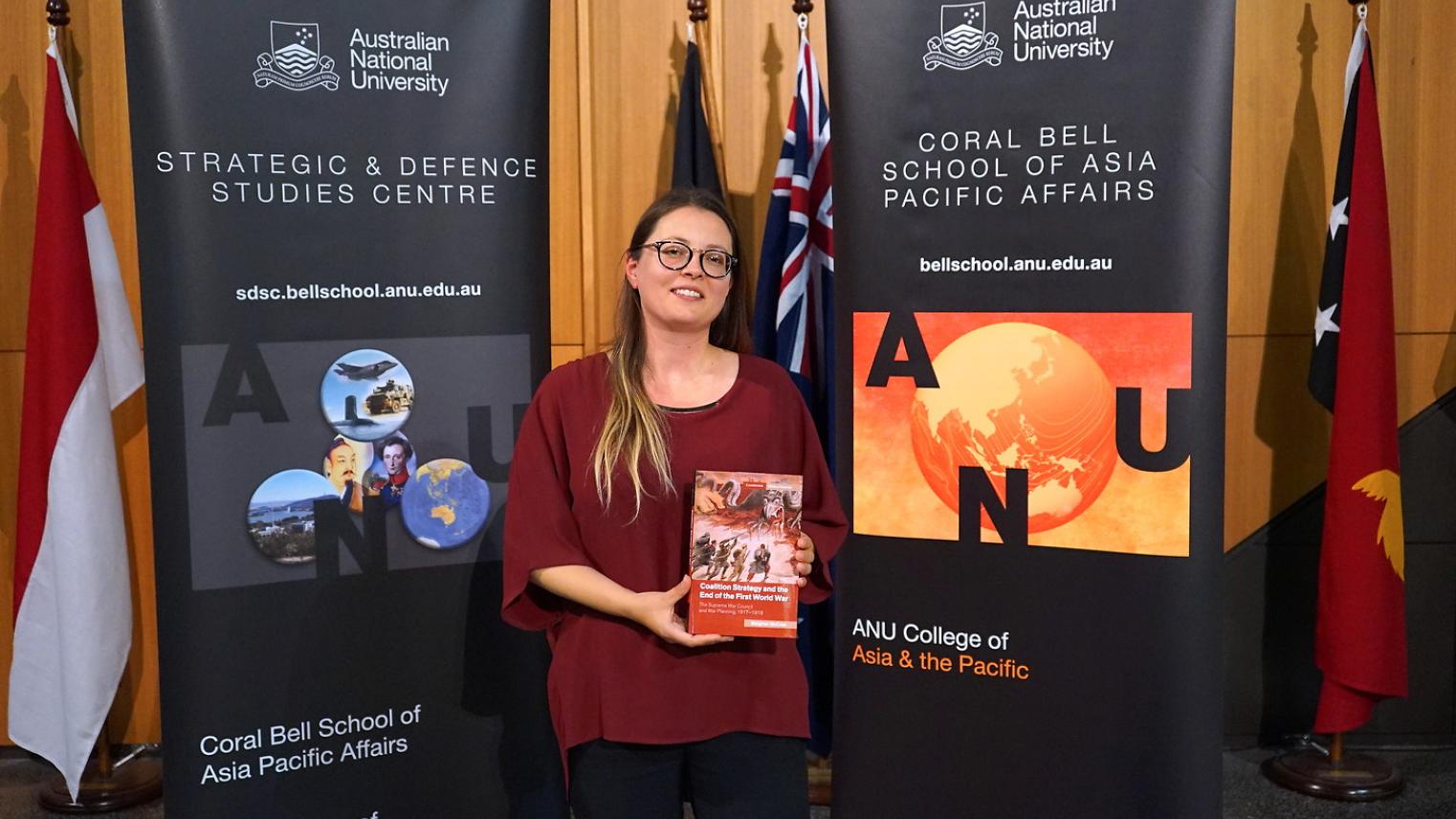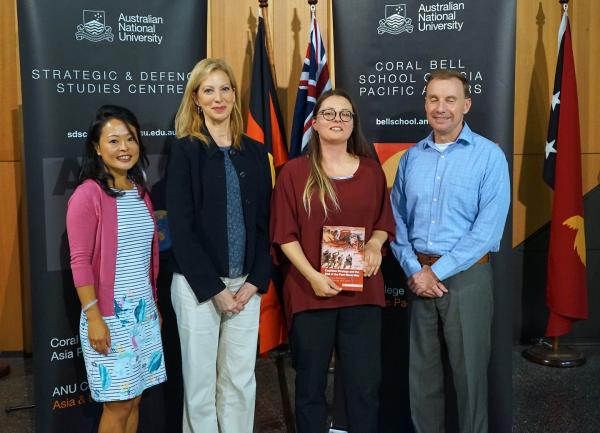Dr Meighen McCrae's book recognised as 'the best work of history on WWI (in English)’

Dr Meighen McCrae, of the ANU Strategic and Defence Studies Centre, has been awarded the 2020 Tomlinson Book Prize for her book ‘Coalition Strategy and the End of the First World War: The Supreme War Council and War Planning, 1917–1918’. This prestigious award recognises her work as ‘the best work of history in English on World War One.
Her book focuses on the efforts of Britain, France, Italy and the United States to forge a tightly coordinated coalition in the final years of the war. She argues that the Supreme War Council acted as a successful forum for Allied coordination for a final war-winning campaign in 1919.
In addition to the Tomlinson Prize, her book has been awarded the ‘2021 Society of Military History Distinguished (SMH) Book Award (First Book)’ which considers books in the broad category of military history. This award means that her work has been recognised widely in general competitions involving both first time authors (SMH) and all authors (Tomlinson); as well as in both the broader subject field of military history (SMH) and the specific field of First World War history (Tomlinson).
Read more about the Tomlinson Book Prize here.
Read more about the SMH Award here.
Dr McCrae is a historian of international history and the history of war. She is particularly interested in three main areas: the way coalitions fight, notions of victory, and how individuals think about future war during periods of conflict or great international tension.
Reviews
‘With this timely, balanced and illuminating study of the Supreme War Council, Meighen McCrae gives us an excellent opportunity to reconsider both Allied strategy in 1917-18 and the difficulties of fighting a coalition war. Essential reading for students of the First World War, grand strategy and conflict resolution.’ Jonathan Boff, University of Birmingham
‘Meighen McCrae’s deeply researched study of the creation, workings and achievements of the Supreme War Council in 1918 illuminates the key factors that bound together the Entente Allies, allowing them to prevail. Using American, British and French sources, she gives a more comprehensive picture of the war’s global nature than that offered by many historians. This fine work enhances our understanding of how and why the First World War ended in Allied victory.’ Elizabeth Greenhalgh, University of New South Wales, Canberra
‘A very important read for anyone seriously interested in the Great War or in the problems of coalition warfare.’ A. A. Nofi, The NYMAS Review.

